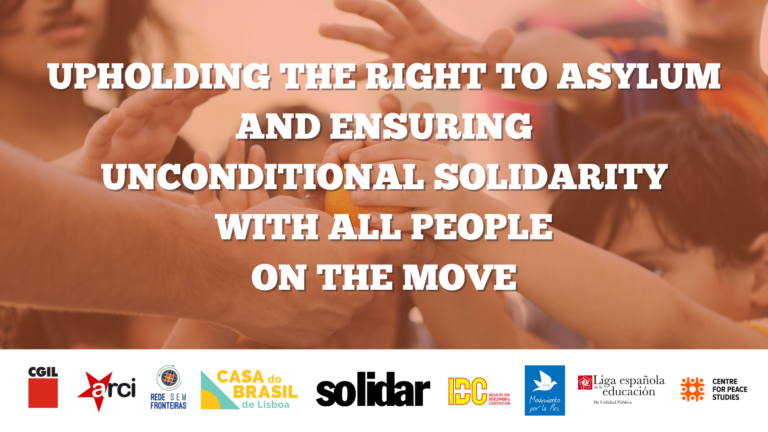EU Pact on Migration and Asylum: Member States’ recent agreement is a severe blow back to protection standards in Europe
On Thursday 8th June, the Council of the European Union (the Council) led by the Swedish presidency reached an agreement on two files of the EU Pact of Migration and Asylum: the Asylum and Migration Management Regulation (AMMR) and the Asylum Procedures Regulation (APR). Trialogues have been open as those files need to be discussed with the Parliament.
The agreement reached by Member States is overwhelmingly negative.
Dublin rules are slightly improved by a ‘’mandatory’’ solidarity mechanism with a target relocation of 30,000 asylum seekers at EU level per year. However, this number does not improve significantly from the current relocation numbers and remains very far from the actual relocation needs. The principle of responsibility of the State of first entry remains the norm and proposals to improve the family ties criteria in the rules of responsibility were rejected. There would be a flexibility element to the focus on relocation, as Member States would be given the choice of either taking people in or paying a sponsorship of €20,000 for each person they don’t take. Quoting the Council’s press release ‘’No member state will ever be obliged to carry out relocations’’. This possibility to opt out of solidarity goes by definition in the complete opposite direction to a fair sharing of responsibility, likely leaving Member States at the borders with the bulk of the responsibility.
We see that responsibility for asylum-seekers is increasingly shifted to the borders:
- First, the Member States at the borders. The Council agreement proposes to expand the use of the borders procedures (quick assessment of asylum applications to see if they are unfounded or inadmissible taking place at the borders), making it mandatory for all people from countries for which the recognition rate is lower than 20%. The European Council of Refugees and Exiles (ECRE) contends this is likely a demand from northern, non-border Member States, with the objective to limit secondary movement. As pointed out by the European Network Against Racism (ENAR), this would legitimize different treatment of people originating from countries that are precisely already the target of racism and xenophobia, reinforcing this discrimination. It will also increase the number and length of detentions at borders, generally feeding a hotspot-like situation. With this proposal, people including families and children, could be detained at the border for up to 6 months (this including the return procedure if found applicable).
- At the same time, to EU neighbouring countries in an expansion of the ‘’readmission/return to safe third country’’ approach. A novelty in the Council agreement, is the idea that Member States will be able to assess individually which country is a safe third country or not for return or readmission. This failure to agree on a common EU determination of ‘safe third countries’, is a clear threat to the respect of non-refoulement. Indeed, it increases the risk for people to be transferred to countries that crackdown on fundamental rights, if it takes only the one State responsible for them to judge the country safe. According to Politico, there might be the need to prove a ‘connection’ between the third country and the person, but elements as vague as having previously settled in the country, or the existence of family members, could be enough to prove that ‘connection’ and deport people there.
This shift of solidarity towards borders States is concerning as it will likely lead those States to choose to prevent people’s entry to the EU.
SOLIDAR is appalled by the direction taken by Member States and calls for the Parliament to firmly stand its ground in the negotiation with the Council and not give up on ensuring the protection of fundamental rights of people entering the EU as well their right to seek protection. SOLIDAR reminds once again that a different response to the migration and asylum challenges is possible, as was demonstrated by the European response towards people displaced from Ukraine. European coordination to swiftly grant a protection status allowing access to rights including the labour market, education, health and housing, and associated to freedom of movement enabling autonomy, are key elements for a rights- and solidarity- based European approach to migration and protection.
For any further information, contact Julie Martinaud at julie.martinaud@solidar.org.
Featured image credits: PP Photos on Shutterstock



